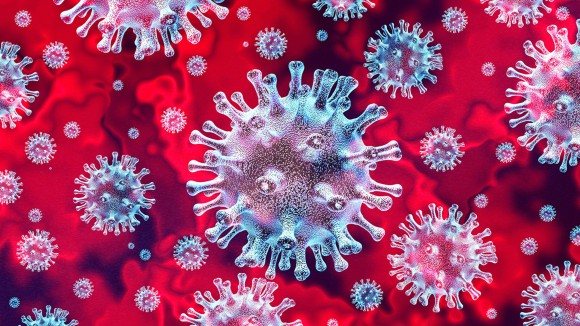We are going to discuss this virus infection that has started from China and spread globally has freaked out many people around the world.

Our today's topic is going to have four small parts.
- What is Coronavirus and what are the
symptoms?
- How the immune system
defends you against any viral infections including Coronavirus.
- General guidance that how
could you reduce the risk of getting infected?
- How you can boost your immune system.
Coronavirus and what are the symptoms?
Coronavirus is a virus that has a group of viruses, causes infection in
animals. including new viruses and have made the jump to humans, but most just
cause cold-like symptoms.

According to the World Health Organisation (WHO), the main symptoms of the coronavirus are as follow:
- A dry cough
- Tiredness/lethargy
- Shortness of breath (in more
severe cases)
Some patients may have "aches and pains, nasal blockage, runny
nose, sore throat".
These symptoms are usually tempered and begin continuously. Some people
become infected but don’t disclose any symptoms and don't feel unwell".
How the immune system defends you against any viral infections
The immune system defends your body from outside enemies, such as
bacteria, viruses, parasites, and poisons (chemicals produced by germs). It is
built up of various organs, cells, and proteins that work collectively.
The immune system defends your body from outside enemies, such as
bacteria, viruses, parasites, and poisons (chemicals produced by germs). It is
built up of various organs, cells, and proteins that work collectively.
Many factors make it harder for our bodies. immune systems to work at
their best and fight off potentially harmful pathogens (like the new
coronavirus). They include:
Smoking defeats your immune systems and weakens your lungs, so people who
smoke are more sensitive to becoming a viral infection.
Medications Some medicines can keep your immune system from working in the way
that healthy people would.
“Immunomodulators, steroids, or medications for autoimmune conditions
can suppress your immune system,”.
Age Young children can be more sensitive to reaching infections
because their immune systems are still developing. And also older people, too,
tend to have weaker immune systems than other groups. Older people can have
multiple chronic medical problems, says Lin. If the body is constantly dealing
with a variety of medical conditions that can make it harder to fight off a
virus.
Underlying medical conditions Preexisting chronic medical
conditions, like asthma, diabetes, and heart disease, can affect the immune
system and make people with these conditions at a higher risk of infections.
People with these conditions also do appear to be at a higher risk of becoming
severely ill with the new coronavirus than others.
General Guidelines
- Regularly and thoroughly
clean your hands with an alcohol-based hand rub or wash them with soap and
water.
Why? Washing your hands with soap and water or using alcohol-based hand rub kills viruses that may be on your hands.
- Maintain at least 1 meter (3
feet) distance between yourself and anyone who is coughing or sneezing.
Why? When someone coughs or sneezes they spray small liquid droplets from their nose or mouth which may contain viruses. If you are too close, you can breathe in the droplets, including the COVID-19 virus if the person coughing has the disease.
- Avoid touching eyes, nose
and mouth.
Why? Hands touch many surfaces and can pick up viruses. Once contaminated, hands can transfer the virus to your eyes, nose or mouth. From there, the virus can enter your body and can make you sick.
- Make sure you, and the
people around you, follow good respiratory hygiene. This means covering your mouth and nose with your bent elbow or tissue when you cough or sneeze. Then dispose of the used tissue immediately.
Why? Droplets spread the virus. By following good respiratory hygiene you protect the people around you from viruses such as cold, flu and COVID-19.
- Stay home if you feel unwell. If you have a fever, cough and difficulty breathing, seek medical attention and call in advance. Follow the directions of your local health authority.
-
Why? National and local authorities will have the most up to date information on the situation in your area. Calling in advance will allow your health care provider to quickly direct you to the right health facility. This will also protect you and help prevent spread of viruses
and other infections.
- Keep up to date on the
latest COVID-19 hotspots (cities or local areas where COVID-19 is spreading widely). If possible, avoid traveling to places –
especially if you are an older person or have diabetes, heart or lung
disease.
Why? You have a higher chance of catching COVID-19 in one of these areas.
How you can boost your immune system
A healthy and well-balanced diet plan plays a crucial role to improve the immune system. Some of the best foods that help to improve your immune defense system are as follows.
Blueberries, Chocolate, Turmeric, Oily fish, Broccoli, Potatoes, Spinach, Coffee, Green Tea.etc
Reference Links:
No comments:
Post a Comment